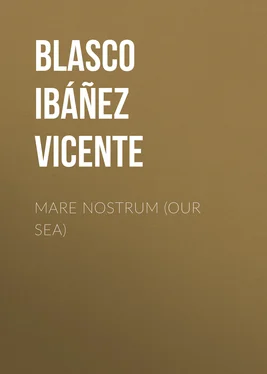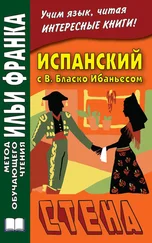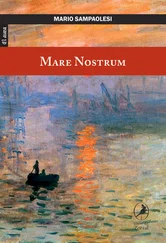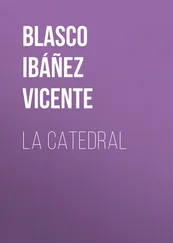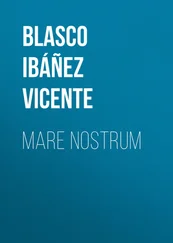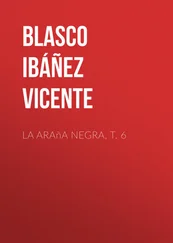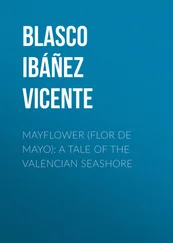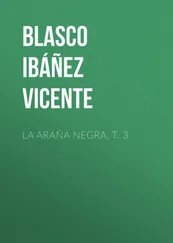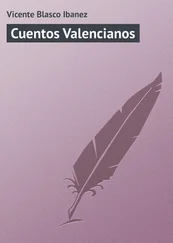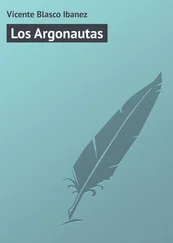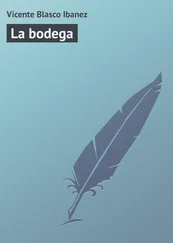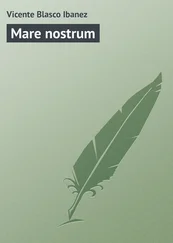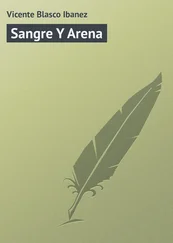Vicente Blasco Ibáñez - Mare Nostrum (Our Sea)
Здесь есть возможность читать онлайн «Vicente Blasco Ibáñez - Mare Nostrum (Our Sea)» — ознакомительный отрывок электронной книги совершенно бесплатно, а после прочтения отрывка купить полную версию. В некоторых случаях можно слушать аудио, скачать через торрент в формате fb2 и присутствует краткое содержание. Жанр: foreign_prose, foreign_antique, на английском языке. Описание произведения, (предисловие) а так же отзывы посетителей доступны на портале библиотеки ЛибКат.
- Название:Mare Nostrum (Our Sea)
- Автор:
- Жанр:
- Год:неизвестен
- ISBN:нет данных
- Рейтинг книги:5 / 5. Голосов: 1
-
Избранное:Добавить в избранное
- Отзывы:
-
Ваша оценка:
- 100
- 1
- 2
- 3
- 4
- 5
Mare Nostrum (Our Sea): краткое содержание, описание и аннотация
Предлагаем к чтению аннотацию, описание, краткое содержание или предисловие (зависит от того, что написал сам автор книги «Mare Nostrum (Our Sea)»). Если вы не нашли необходимую информацию о книге — напишите в комментариях, мы постараемся отыскать её.
Mare Nostrum (Our Sea) — читать онлайн ознакомительный отрывок
Ниже представлен текст книги, разбитый по страницам. Система сохранения места последней прочитанной страницы, позволяет с удобством читать онлайн бесплатно книгу «Mare Nostrum (Our Sea)», без необходимости каждый раз заново искать на чём Вы остановились. Поставьте закладку, и сможете в любой момент перейти на страницу, на которой закончили чтение.
Интервал:
Закладка:
The pòrche was the immense garret of the great old house, so all accepted the plan with enthusiasm. Church was over! And like a flock of birds they went flying up the stairs over the landings of multi-colored tiles with their chipped glaze, disclosing the red brick underneath. The Valencian potters of the eighteenth century had adorned these tiles with Berber and Christian galleys, birds from nearby Albufera, white-wigged hunters offering flowers to a peasant girl, fruits of all kinds, and spirited horsemen on steeds that were half the size of their bodies parading before houses and trees that scarcely reached to the knees of their prancing coursers.
The noisy group spread themselves over the upper floor as in the most terrible invasions of history. Cats and mice fled together to the far-away corners. The terrified birds sped like arrows through the skylights of the roof.
The poor notary!… He had never returned empty-handed when called outside of the city by the confidence of the rich farmers, incapable of believing in any other legal science than his. That was the time when the antique dealers had not yet discovered rich Valencia, where the common people dressed in silks for centuries, and furniture, clothing and pottery seemed always to be impregnated with the light of steady sunshine and with the blue of an always clear atmosphere.
Don Esteban, who believed himself obliged to be an antiquarian by virtue of his membership in various local societies, was continually filling up his house with mementoes of the past picked up in the villages, or that his clients freely gave him. He was not able to find wall space enough for the pictures, nor room in his salons for the furniture. Therefore, the latest acquisitions were provisionally taking their way to the pòrche to await definite installation. Years afterward, when he should retire from his profession, he might be able to construct a medieval castle—the most medieval possible on the coasts of the Marina ; near to the village where he had been born, he would put each object in a place appropriate to its importance.
Whatever the notary deposited in the rooms of the first floor would soon make its appearance in the garret as mysteriously as though it had acquired feet; for Doña Cristina and her servants, obliged to live in a continual struggle with the dust and cobwebs of an edifice that was slowly dropping to pieces, were beginning to feel a ferocious hatred of everything old.
Up here on the top floor, discords and battles because of lack of things to dress up in, were not possible among the boys. They had only to sink their hands into any one of the great old chests, pulsing with the dull gnawing of the wood-borers, whose iron fretwork, pierced like lace, was dropping away from its supports. Some of the youngsters, brandishing short, small swords with hilts of mother-of-pearl, or long blades such as the Cid carried, would then wrap themselves in mantles of crimson silk darkened by ages. Others would throw over their shoulders damask counterpanes of priceless old brocade, peasant skirts with great flowers of gold, farthingales of richly woven texture that crackled like paper.
When they grew tired of imitating comedians with noisy clashing of spades and death-blows, Ulysses and the other active lads would propose the game of "Bandits and Bailiffs." But thieves could not go clad in such rich cloths; their attire ought to be inconspicuous. And so they overturned some mountains of dull-colored stuffs that appeared like mere sacking in whose dull woven designs could be dimly discerned legs, arms, heads, and branching sprays of metallic green.
Don Esteban had found these fragments already torn by the farmers into covers for their large earthen jars of oil or into blankets for the work-mules. They were bits of tapestry copied from cartoons of Titian and Rubens which the notary was keeping only out of historic respect. Tapestry then, like all things that are plentiful, had no special merit. The old-clothes dealers of Valencia had in their storehouses dozens of the same kind of remnants and when the festival of Corpus Christi approached they used them to cover the natural barricades formed by the ground, instead of building new ones in the street followed by the processions.
At other times, Ulysses repeated the same game under the name of "Indians and Conquerors." He had found in the mountains of books stored away by his father, a volume that related in double columns, with abundant wood cuts, the navigations of Columbus, the wars of Hernando Cortez, and the exploits of Pizarro.
This book cast a glamor over the rest of his existence. Many times afterwards, when a man, he found this image latent in the background of his likes and desires. He really had read few of its paragraphs, but what interested him most were the engravings—in his estimation more worthy of admiration than all the pictures in the garret.
With the point of his long sword he would trace on the ground, just as Pizarro had done before his discouraged companions, ready on the Island of Gallo to desist from the conquest: "Let every good Castilian pass this line…." And the good Castilians—a dozen little scamps with long capes and ancient swords whose hilts reached up to their mouths—would hasten to group themselves around their chief, who was imitating the heroic gestures of the conqueror. Then was heard the war-cry: "At them! Down with the Indians!"
It was agreed that the Indians should flee and on that account they were modestly clad in scraps of tapestry and cock feathers on their head. But they fled treacherously, and upon finding themselves upon vargueños , tables and pyramids of chairs, they began to shy books at their persecutors. Venerable leather volumes decorated with dull gold, and folios of white parchment fell face downward on the floor, their fastenings breaking apart and spreading abroad a rain of printed or manuscript pages and yellowing engravings—as though tired of living, they were letting their life-blood flow from their bodies.
The uproar of these wars of conquest brought Doña Cristina to the rescue. She no longer cared to harbor little imps who preferred the adventurous whoops of the garret to the mystic delights of the abandoned chapel. The Indians were most worthy of execration. In order to make splendor of attire counterbalance the humility of their role, they had slashed their sinful scissors into entire tapestries, mutilating vestments so as to arrange upon their breasts the head of a hero or goddess.
Finding himself without playfellows, Ulysses discovered a new enchantment in the garret life. The silence haunted by the creaking of wood and the scampering of invisible animals, the inexplicable fall of a picture or of some piled-up books, used to make him thrill with a sensation of fear and nocturnal mystery, despite the rays of sunlight that came filtering in through the skylights; but he began to enjoy this solitude when he found that he could people it to his fancy. Real beings soon annoyed him like the inopportune sounds that sometimes awoke him from beautiful dreams. The garret was a world several centuries old that now belonged entirely to him and adjusted itself to all his fancies.
Seated in a trunk without a lid, he made it balance itself, imitating with his mouth the roarings of the tempest. It was a caravel, a galleon, a ship such as he had seen in the old books, its sails painted with lions and crucifixes, a castle on the poop and a figure-head carved on the prow that dipped down into the waves, only to reappear dripping with foam.
The trunk, by dint of vigorous pushing, could be made to reach the rugged coast at the corner of the old chest, the triangular gulf made of two chests of drawers, and the smooth beach formed by some bundles of clothes. And the navigator, followed by a crew as numerous as it was imaginary, would leap ashore, sword in hand, scaling some mountains of books that were the Andes, and piercing various volumes with the tip of an old lance in order to plant his standard there. Oh, why had he not been one of the conquerors?…
Читать дальшеИнтервал:
Закладка:
Похожие книги на «Mare Nostrum (Our Sea)»
Представляем Вашему вниманию похожие книги на «Mare Nostrum (Our Sea)» списком для выбора. Мы отобрали схожую по названию и смыслу литературу в надежде предоставить читателям больше вариантов отыскать новые, интересные, ещё непрочитанные произведения.
Обсуждение, отзывы о книге «Mare Nostrum (Our Sea)» и просто собственные мнения читателей. Оставьте ваши комментарии, напишите, что Вы думаете о произведении, его смысле или главных героях. Укажите что конкретно понравилось, а что нет, и почему Вы так считаете.
